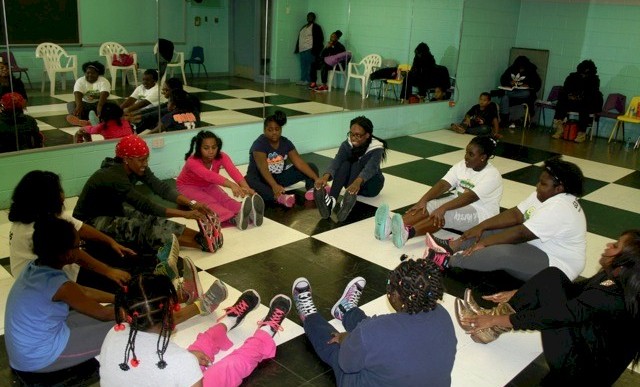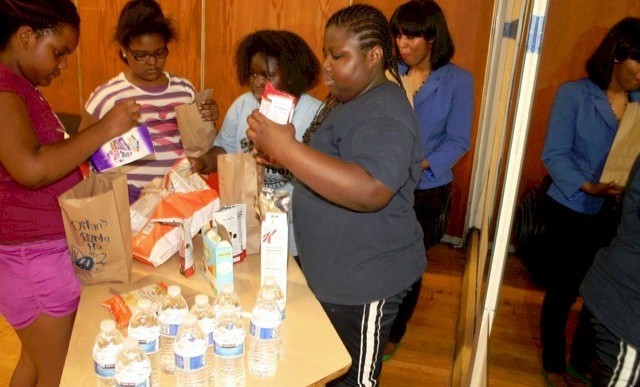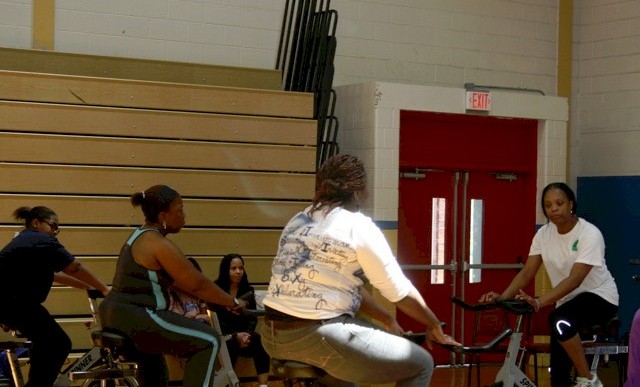FORGOTTEN BUT NOT GONE
FORGOTTEN BUT NOT GONE
Initiated in 1988, World AIDS Day was the first ever global health day. World AIDS Day is held on the first day of December each year. The day is an opportunity for people worldwide to unite in the fight against HIV, show their support for people living with HIV and to commemorate people who have died.
WHY SHOULD WE CARE ABOUT IT?
More than 1.2 million people are currently living with HIV in the US and an estimated 33.3 million people have HIV globally. Two million new infections occur each year in the world; 25 million people between 1981 and 2007 have died from the virus, making it one of worse diseases in our history.
Many people are not aware of the facts about how to protect themselves and others from HIV. Stigma, shame and discrimination are real for many people living with HIV. World AIDS Day is an important reminder to the Public and Government that HIV has not gone away. We still need to increase awareness, fight prejudice and improve education.
HOW CAN I HELP?
World AIDS Day is an opportunity for you to learn about HIV, get tested and put your knowledge into action! If you understand how HIV is transmitted, how it can be prevented, and the reality of living with HIV today – you are better prepared to take care of your own health. People living with HIV should be treated with dignity and respect like everyone else. You can also show your support for people living with HIV on World AIDS Day by wearing a red ribbon, the international symbol of HIV awareness. The importance of raising awareness of HIV is critical all year round.
HIV FACTS
HIV stands for the Human Immunodeficiency Virus. It is a virus which attacks the body’s immune system — the body’s defense against diseases.
HIV can be passed on through infected bodily fluids, most commonly via sex without a condom or by sharing infected needles, syringes or other injecting drug equipment.
There are more than 1.2 million people living with HIV in the US, 1in 5 (20%) of those are unaware they have the virus with 50 thousand new infections each year. [1]
- You can get tested through a rapid test which only takes 15-20 minutes
- In NJ you can dial 1-800-624-2377 for testing
- HIV is a Chronic Disease and you can live a healthy productive life when treated
- Remember Stigma can kill because of shame and fear-Lets Break The Cycle
GET TESTED, GET EDUCATED and KNOW YOUR STATUS!
Anastasia Gray, MSN, CRNP
_______________________
1 WorldAIDSDay.org
2 WorldHealthOrganization.org
Childhood Then and Now
Childhood Then and Now
I spent my childhood in the 1940s and ‘50s half an hour from Manhattan in a neighborhood that was made famous years later by the TV character Archie Bunker.
It was certainly no one’s idea of country living, yet my life was nothing like that of a suburban child today. After school, we would throw our book bags in the house and head for the streets for games of stickball and punchball, broken up every few minutes to let a car pass by. Or we would go to the nearby woods (later to become an apartment project) for bike rides and wrestling matches. All this would end at dinner time, when our mothers would yell for us to return for a home cooked meal.
There were no computer games. Life on the streets was probably less safe than our parents thought, but no one required us to stay within sight. McDonald’s and the other fast food places didn’t exist yet, so our portions weren’t supersized and calorie laden.
One result of all that was that very few of us were overweight. It’s amazing to realize that 65% of children and teens in New Jersey today are overweight or obese .The health implications of this problem are enormous. Type 2 diabetes, which used to be called adult-onset diabetes, is now a common condition of childhood. Most people of my generation can expect to have longer lives than their parents, thanks largely to better health care. Our children and grandchildren, unfortunately, are likely to have shorter lives because they eat worse and exercise less than us.
We aren’t about to re-create the woods and open spaces of my childhood. But we can encourage our children to get away from the computer games, go outside and maybe learn how to run a bit wild, how to invent new games, how to play with their friends. That, after all, is what being a child is about. And we can prepare nutritious food for them and try to get them to actually like it.
Bob Uris
.
G3 Health and Nutrition Series Offered at the Kennedy Center, Willingboro
G3 Health and Nutrition Series
Offered at the Kennedy Center, Willingboro
Those of you following G3 Health and Fitness have learned that we keep pretty busy. G3 has to stay busy to battle childhood obesity.
With one in four children in the Philadelphia area classified as obese, G3 Health and Fitness hopes to have everyone in Willingboro and the surrounding areas capture the G-Factor: Get Moving, Get knowledge and Get Healthy and Strong. If it isn’t the exhilarating, fast-paced Zumba class geared for children, then it is developing informative health tips for their parents!
Beginning Tuesday October 11th, 2011 G3 Health and Fitness, in conjunction with the Willingboro Recreation and Parks Department, will launch a six week Health and Nutrition Series for parents, as well as a Zumba class twice a week for children
The G3 Health and Nutrition Series is taught by professionals – Doctors, Nurse Practitioners, Dentists and Nutritionists. It is free of charge, although donations are always welcome. Seminars are from 6-6.45pm on Tuesdays.
October 11 – Halting Hypertension
October 18 – Controlling Diabetes
October 25 – Necessity of Nutrition
November 1 – Battling Obesity
November 8 – Sexual Health
November 15 – Dental Health and Your Family
G3’s Zumba for Kids is all about an effective, easy-to-follow, Latin-inspired fitness dance party specially choreographed for children. It focuses on increasing their self-confidence, boosting metabolism and enhancing coordination….all wrapped up in music they love like Hip-Hop, Reggae, Cumbia and more. G3 Zumba for Kids class runs from October 11 to November 17th on Tuesdays and Thursdays at 6pm. The cost for Residents is $30/6 wks, Non-Residents: $37/6 wks.
So why not sign your child up for the Zumba for Kids class and stop on into a free seminar? Learn a little something to help yourself and your family while your child is off dancing and having fun!
Registration for the Health and Nutrition seminars are encouraged but walk-ins are welcome. To register contact the Willingboro Recreation and Parks Department (609) 877.5700.
For more information about G3 Health and Fitness contact us at
g3healthandfitness@gmail.com or www.G3HealthandFitness.org.
.
.
.
Annie Mazur
.
Mayor Nutter’s NOT Nuts!
Philadelphia Mayor Michael Nutter recently proposed a tax on sweetened beverages such as soda, bottled iced teas and energy drinks. While this move is obviously revenue driven, it has a much more responsible and health conscious goal for one ofAmerica’s fattest cities: reducing the ever escalating obesity problem and with it reducing the risk of diabetes, heart disease and tooth decay in children.
As a child, I remember that soda drinking was limited in our house. It was considered a treat. However in recent years, soda has become the beverage of choice in American households and the worldwide consumption of it and other sugary drinks has doubled. We and our children are drinking more of the stuff and adding a pretty large dose of nutritionally empty calories to our daily intake.
A single 12 ounce soda is about 160 calories and I’m sure we’ve all seen kids throw back a couple of cans of it a day. (In lieu of drinking water!). A study involving middle-school students over the course of 2 school years showed that the risk of becoming obese increased by 60% for every extra serving of sugar-sweetened drinks per day. YIKES! And check this out: there is even evidence to suggest that children who are chronic consumers of these beverages find that less sweet foods are unappealing. Our kids essentially lose the taste for vegetables and fruits every time they take a swig of soda!! According to the Center for Disease control, children who have such poor dietary habits and are obese at ages 10 to 15, will remain obese when they are 25. Lessening childhood obesity means less overweight adults and improving the health of Americans overall.
I could go on and on citing studies which bear out the negative effects of increased sweetened beverage consumption, so the question is, “Why do we continue to ingest the stuff ? Soda is cheap and widely available. Some folks would say it just tastes good! That might be true, but there are a number of other reasons it is appealing to us: Advertisers do a great job of making it look cool and socially acceptable to drink their products, so we tend to think more about the immediate “aahhh” of the product than the long term “oohhh” of it’s negative health effects. Lack of accurate information contributes as well; most folks don’t associate increased sugar intake to obesity and disease, and the labels don’t tell you that this stuff is hazardous to your health. It really is the obligation of government and health officials to inform and educate the public about this health threat, waging a war against it in the same way we did against cigarette smoking. Jane Q. Public is responsible for utilizing that information to live a healthier lifestyle.
I know nothing of his political views, but regarding this soda tax, Mayor Nutter’s NOT nuts! The opposition will tell us that overall these tax hikes won’t lead to any meaningful change in most peoples behavior or lifestyle, but there is evidence to dispute that. Folks drive less when the price of gas increases and smoke less when the price of cigarettes go up. I agree with nutritionists that while there is no magic bullet to solve the problem of obesity, there has to be a first step. Nutters’ proposal would be taking a crucial first step toward reducingPhiladelphia’s liquid caloric intake. And it would likely start a tidal wave of “sweet drink” tax increases in other major cities. If the tax leads to less consumption, it would ultimately lower health care costs and the increased revenue could support more healthy initiatives like childhood nutrition programs and obesity-prevention programs. And really, what’s nuts about that?
Vikki Goyins
Reference: The Public Health and Economic Benefits of Taxing Sugar-Sweetened Beverages
N Engl J Med 2009; 361:1599-1605October 15, 2009
Challenging Childhood Obesity
When I was approached to join G3 Health and Fitness I immediately accepted. I personally have several family members who suffer from adverse health conditions due to obesity and a sedentary lifestyle. The fact is that one of every three children in America is now considered overweight or obese, and childhood obesity has more than tripled in the past 30 years. The results have been an increased potential for obesity-related diseases that include type-2 diabetes, asthma, hypertension, high cholesterol, bone and joint problems, and sleep apnea. It is also linked to a range of social and psychological issues including poor self-esteem, depression, withdrawal and poor peer relationships. Children and adolescents who are overweight are more likely to become adults who are overweight.
What can we do?
Encourage a healthy lifestyle
By highlighting the positive turn bike riding, walking, running into family outings. G3 Health and Fitness has found that kids who exercise often have a healthier body weight than kids who don’t exercise. Children and teens should participate in at least 60 minutes of moderate intensity physical activity at least 3-5 days a week. Remember that children imitate adults. Start adding physical activity to your own daily routine and encourage your children to join you.
Some examples of moderate intensity physical activity include:
• Brisk walking
• Playing tag
• Jumping rope
• Playing soccer
• Swimming
• Dancing
Encourage healthy eating habits.
Help your children and family develop healthy eating habits:
• Provide plenty of vegetables, fruits, and whole-grain products.
• Include low-fat or non-fat milk or dairy products.
• Choose lean meats, poultry, fish, lentils, and beans for protein.
• Serve reasonably-sized portions.
• Encourage your family to drink lots of water.
• Limit sugar-sweetened beverages.
• Limit consumption of sugar and saturated fat.
Remember that small changes every day can lead to a recipe for success!
Susan Ball
Join the Fight Against Childhood Obesity
Change is sometimes a good thing, but when it comes to children’s physical activity and nutrition, the changes that we have seen over the past decade are not positive. About 1/3 of all children in America are obese. Childhood Obesity is escalating at a disproportionate rate, especially in the African American communities. When we think about the correlation between obesity and chronic diseases like diabetes, high blood pressure and heart disease, the numbers are staggering.
So what’s changed? I recently heard Dr. Darrin Anderson share information on Childhood Obesity. He cited three main causes:
1. Less active playtime
2. Eating more fast food
3. In poorer communities there are fewer corner grocers in walking distance selling fresh vegetables and fruit.
I can relate to all three of them. Reflecting on my childhood, I remember walking several blocks to school. All the kids on the street spent a big part of their free time having fun running and playing outside. We didn’t eat at fast food restaurants instead our Moms cooked at home.
Today, things are different for our kids. If they are not involved with organized sports, then TV, computer and video games may fill a big chunk of their time. The only exercise they’re getting with these activities are pushing the remote buttons or jumping up to get snacks filled with sugar and fat.
Here is the good news! G3 Health and Fitness is a non-profit corporation which was formed to fight Childhood Obesity. As a pharmaceutical rep calling on Dialysis clinics, I saw firsthand how poor diet and inactivity can lead to fatal chronic diseases. Our team of professionals working on this initiative is passionate and committed about the health of our children. We are partnering with community centers and organizations to offer fun fitness sessions, demo healthy cooking and offer health and wellness education. G3’s vision is comprehensive, including volunteer opportunities for upper level students to stay active through a mentoring program. This blog is dedicated to keeping the issue of Childhood Obesity front and center. G3 Health and Fitness goal is to help kids and their families get the G Factor – “Get Moving, Get Knowledge and Get Healthy and Strong.”
Cynthia Carpenter



